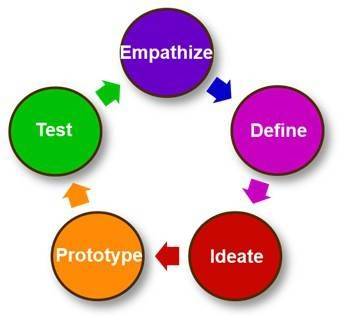Who will benefit from this course?
The Design Thinking Practitioner course is designed for everybody who has an interest in solving problems and building something new.
You will benefit from this course if:
- You want to start your journey towards becoming a Design Thinking practitioner
- You have a basic need for Design Thinking:
Content
- What is Design Thinking?
- Design Thinking worked for them! : Case studies in Design Thinking
- The Design Thinking process in detail
- Ethnography : Observing customers and users
- Making sense of observations : Finding patterns and looking for connections
- Finding high-value problem to solve
- Rapid testing and evolution of best solutions
- Building individual and corporate creativity
- Leveraging your ‘will to create’
- Design Thinking projects
- Establishing the team
- Building your workspace
- Establishing rituals and culture
- Project patterns
- Linking Design Thinking to business Return on Investment
- Business testing for products and services
Practical Workshop Activities
During the course you will practice the skills of Design Thinking through a series of practical ‘workshop’ style activities. These activities have been designed to reinforce the course content and to give you practice in the workplace application of Design Thinking.
You will get the opportunity develop the skills to use each of the tools and methods presented during the course. Our goal is to enable you to leave the course ready and able to apply the methods and tools of Design Thinking to your real projects
The course is split broadly 50:50 between lecture style content and hands-on practical workshop activities. Throughout the course you will have many opportunities to ask questions of the course tutor and to discuss ideas, tools and methods with other course attendees.
Attending Your Course
Further details will be emailed to you two weeks ahead of your course, which will include registration information.
Please get in touch if you have not received this information within five working days of the course start date.
In the meantime, you may wish to plan your travel: Travel information


 Visiting Fellow
Visiting Fellow